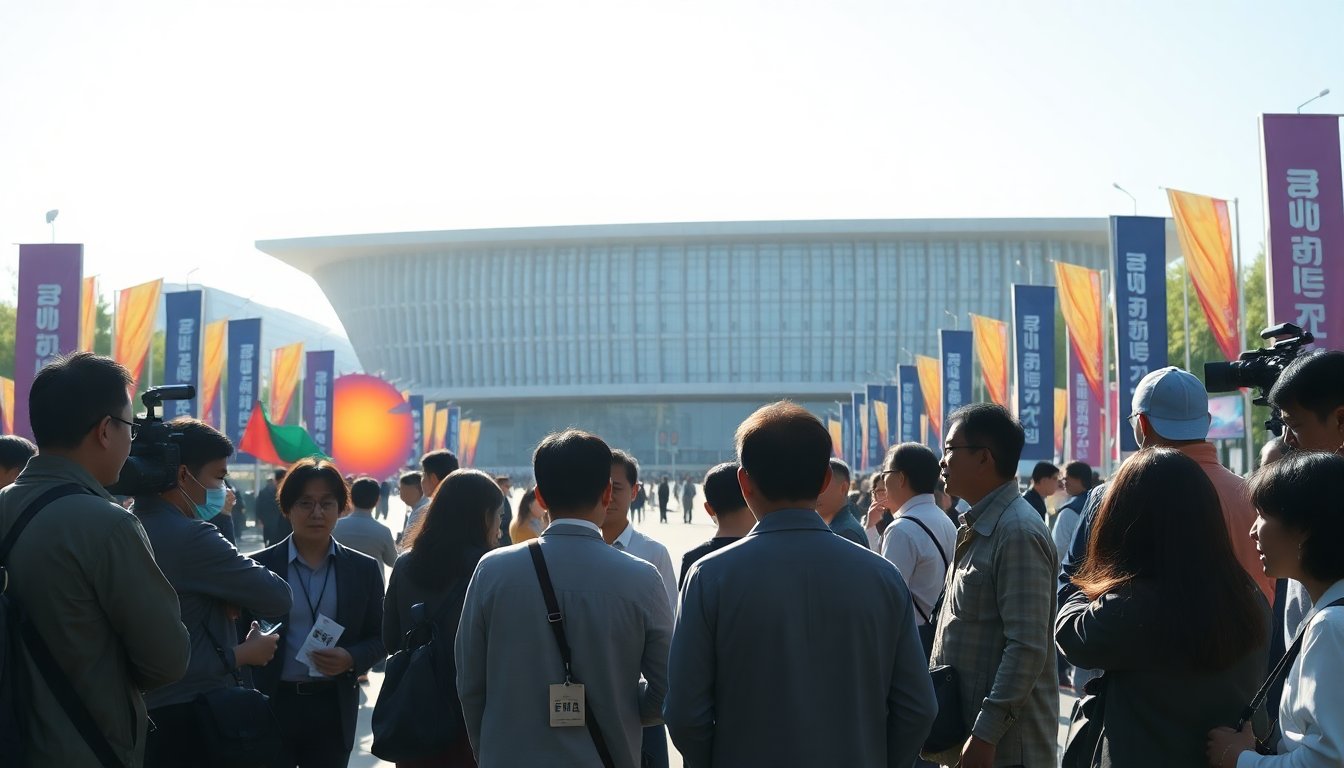Table of Contents
The Busan International Film Festival (BIFF) is celebrating its 30th anniversary with a focus on the future. Director Jung Hanseok aims to guide the festival into a new era. This year is significant, marked by the launch of a Competition section and a complete overhaul of the festival’s structure.
A Bold New Direction
In an interview with Variety, Jung emphasized his vision for this milestone year as the beginning of an exciting chapter rather than a mere look back. “The significance of reaching ’30’ cannot be overlooked,” he stated. “However, my aim is for this edition to be memorable not just for its anniversary but for its pioneering spirit that shapes the future of BIFF.”
Competition Section: A Game Changer
The introduction of the Competition section marks a significant transformation during the recent overhaul of the festival by director Jung. By merging the established New Currents and Kim Jiseok sections, the Busan International Film Festival (BIFF) has created a more prominent platform dedicated to showcasing Asian cinema.
Jung acknowledged the limitations of the previous system, emphasizing, “I realized that our two main sections had reached a point where their impact was waning. If someone were to ask about last year’s winners, most would struggle to recall their names, myself included.” This insight led to a refreshed strategy that prioritizes quality over mere geographical representation.
Elevating Asian Cinema
The inaugural lineup of the festival features 14 carefully curated titles, highlighting the significance of each film. Festival director Jung emphasized, “In assembling this selection, we did not prioritize regional diversity; our exclusive focus was on the merit of the films themselves.” This approach has resulted in strong representation from countries such as Japan, China, and Korea, reflecting the current landscape of Asian cinema.
A Symbol of Change
The trophy for the new competition, designed by renowned Thai director Apichatpong Weerasethakul, embodies the festival’s evolving philosophy. He described his creation as resembling a heart or a vase, symbolizing the flow of creativity and collaboration. “This reflects the essence of the Busan International Film Festival, where diverse creators and their stories converge and flourish together,” Jung recounted.
Expanding Horizons
The anniversary celebration presents an impressive selection of 241 films across expanded venues. Notable segments include an enhanced Midnight Passion and a revamped Vision program, which reflect Jung’s balanced and bold programming philosophy. “It was crucial for me to not only focus on individual components but to appreciate the festival’s overall ecosystem,” Jung explained.
Additionally, the Forum BIFF prioritizes industry dialogue, addressing critical issues such as the challenges facing the Korean film industry and emerging trends in Asian cinema. Jung emphasizes the importance of involving practical industry practitioners who can offer actionable solutions rather than merely discussing theoretical concepts.
Opening Film Highlights Festival’s Commitment to Korean Cinema
The festival commenced with the screening of Park Chan-wook’s No Other Choice. This film was selected for its artistic merit and significance during a challenging period for the Korean film industry. “This film serves as a beacon of hope and encouragement, crafted by a director who has profoundly impacted Korean cinema,” stated Jung.
The Competition jury, led by renowned director Na Hong-jin, was chosen for its innovative approach. Jung noted, “We aimed for our inaugural Competition section to be guided by someone who embodies both creativity and audacity, which is why Na Hong-jin was our first choice as Jury President.”
While Jung prefers to describe his initiatives as establishing the Competition section rather than shifting BIFF toward a competitive format, he acknowledges potential for future growth. “If this newly established section proves successful, we may consider introducing additional awards or new programs in subsequent years.”
As BIFF enters its fourth decade, Jung aims to foster an environment where all sections collaborate effectively. This will ensure that the festival not only celebrates Asian cinema but also acts as a crucial platform for the future of filmmaking in the region.


